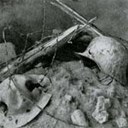0055 "Brushwork thick and easy" or a "beauty-parlor mask for murder"?
Reckoning with the Great German Art Exhibitions in the Western democracies
Identifiers (Article)
Identifiers (Files)
Abstract
This analysis of the reception of the Great German Art Exhibitions in presses in the Western democracies identifies limits, oversights, and key assumptions in these texts. Over time these assumptions accrued the force of myths. Key myths exposed are that Nazi art was: bad art, all the same, propaganda, not art at all, and modernist art's opposite. Concern was also registered that Western audiences might like it. Until war's end, discourse hewed close to frameworks and terms set forth by National Socialist propaganda, whereas postwar discourse was often subsumed within the reeducation programs of Occupation forces. In both phases, frank analysis of the art in exhibition was deferred. Recognition of myths from this early phase of Nazi art's historiography aims to discourage their repetition in scholarship on Nazi art and these exhibitions.
Statistics


License

This work is licensed under a Creative Commons Attribution-NonCommercial-NoDerivatives 4.0 International License.



